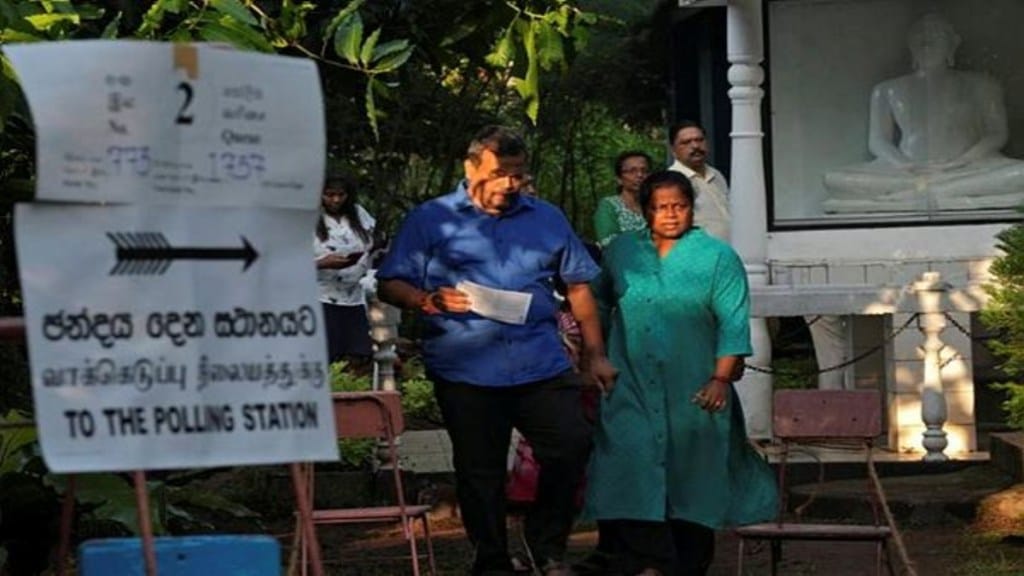Sri Lanka’s National People’s Power (NPP) coalition, led by President Anura Kumara Dissanayake, secured a parliamentary majority following Thursday’s snap general election, according to the Election Commission of Sri Lanka. This anticipated victory is a crucial mandate for Dissanayake, who, since winning the presidency in September, has been striving to implement policies to alleviate the hardships faced by Sri Lanka’s impoverished citizens amid a gruelling economic recovery.
A Sweeping Win for NPP
Contesting under the Malimawa (compass) symbol, the NPP captured 113 seats in the 225-member assembly, data from the election commission’s website confirmed. This marks a significant shift in the political landscape, as the party garnered an impressive 6.8 million votes, representing 61 per cent of the total ballots counted.
The NPP’s performance not only solidifies its majority but also positions it to potentially achieve a two-thirds majority in parliament. Such a mandate would allow the party to implement transformative policies and constitutional reforms, an aspiration outlined by President Dissanayake during his campaign.
This outcome underscores the public’s overwhelming support for Dissanayake’s agenda, which focuses on alleviating poverty, addressing corruption, and steering the nation out of its ongoing financial crisis. The victory signals a departure from traditional political strongholds and heralds a new era in Sri Lankan governance.
With this decisive win, the NPP is poised to play a pivotal role in shaping the country’s future, driven by its vision for economic recovery and social justice.
Dissanayake’s Marxist-leaning coalition previously held only three of the 225 seats in Parliament, prompting him to dissolve the assembly and call for early elections. The snap vote was aimed at forming a strong government to advance his agenda of economic relief, poverty alleviation, and structural reforms.
“We see this as a critical turning point for Sri Lanka. We expect a mandate to form a strong parliament, and we are confident the people will give us this mandate,” Dissanayake commented after casting his vote. He added that this election represents a “change in Sri Lanka’s political culture that started in September,” and emphasised the need for it to continue to secure lasting transformation.
Opposition Results and Political Landscape
Dissanayake’s main rival, the Samagi Jana Balawegaya party led by opposition figure Sajith Premadasa, managed to secure 19% of the vote. The New Democratic Front, affiliated with former President Ranil Wickremesinghe, won just two seats. A total of 690 parties and independent groups vied for seats across 22 districts, marking the highest-ever number of contestants in Sri Lankan electoral history. Out of the 17 million eligible voters, a significant portion cast their ballots in a show of support for Dissanayake’s vision for reform.
An Anti-Establishment Leader Pledging Change
Dissanayake’s political ascent reflects a break from the dynastic, family-driven politics that have dominated Sri Lanka for decades. His NPP coalition emphasizes grassroots, anti-corruption reforms and poverty reduction. These stances have resonated with many voters who continue to struggle with the economic fallout from the 2022 crisis that saw Sri Lanka’s economy shrink by 7.3 per cent that year and 2.3 per cent the following year.
The president has vowed to expand welfare programs, support local businesses, and reduce taxes as part of his anti-poverty agenda. A key component of his policy platform is also to abolish the controversial executive presidency, a powerful office that many believe has concentrated too much authority. To achieve this, Dissanayake would need a two-thirds majority in parliament, a possibility now closer with the NPP’s projected gains.
Economic Challenges Ahead
Sri Lanka’s economy has started a slow recovery, thanks in part to a $2.9 billion International Monetary Fund bailout. While the IMF program has provided some stability, inflation and a high cost of living continue to impact millions, especially the country’s poorest citizens. Dissanayake’s administration aims to alleviate these pressures, but the path to substantial change is challenging and requires broad-based support.
New Direction for Sri Lanka?
Securing a parliamentary majority will be crucial for Dissanayake to implement his agenda fully, as executive power alone does not permit the appointment of a full cabinet or the passage of significant economic policies. If NPP’s momentum carries them to a majority, it would be a landmark victory for a president who has positioned himself as a champion of the people over entrenched political elites.
This election marks a critical juncture for Sri Lanka as it looks to emerge from a historic financial crisis with a focus on structural change. With a potential mandate, Dissanayake’s NPP has the opportunity to reshape the nation’s political and economic landscape and address the pressing issues of poverty, inflation, and systemic corruption.
(With Reuters inputs)

